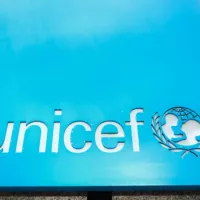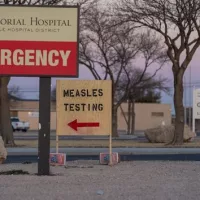
(Ukraine) — About 70% of children in Ukraine — roughly 3.5 million — do not have access to basic goods and services, such as adequate food or shelter, more than three years into the country’s ongoing war with Russia, according to new data published Thursday from UNICEF.
This is a four-fold increase from the 18% who were experiencing the same level of “material deprivation” in 2021, before Russia invaded Ukraine.
UNICEF said “continued and relentless attacks” from Russia on Ukrainian infrastructure as well as on homes, schools and health care facilities have led to a rise in material deprivation.
“Seven out of 10 children are experiencing a severe deprivation in one of these areas that we have looked at whether that’s nutritious food, warm clothing, eating, spaces to play all of the things that any person would want for that child,” Joe English, a communications specialist with UNICEF, told ABC News. “And this is the result when you have more than three years of grinding war with little end in sight.”
English added, “It’s 70% who have this material deprivation, but there is not a child in Ukraine who has not been affected by this war today.”
UNICEF also found that one-third of children in Ukraine live in homes without a functioning water supply and sewage, and nearly half of children in the country do not have access to an area to play at home or outside.
English said it’s likely that these shares of children will only increase unless a ceasefire occurs.
Children in Ukraine have been among the casualties of the war. More than 2,700 children have been killed or maimed since February 2022, according to UNICEF.
Due to the destruction of health care infrastructure, English said many children have not been able to get the care they need for injuries and cannot be medically evacuated either.
English said when he was in Ukraine, he met a 15-year-old boy named Andre whose leg was badly injured when a car he was traveling in hit a landmine. Andre was eventually medically evacuated for treatment.
“No parent, no child wants to leave their homeland if they have any kind of choice,” English said. “When I spoke to Andre, he was adamant he would have preferred to stay in Ukraine, been able to have the support there. And so, investing in health facilities, health structures so that families can continue their lives is critical.”
He added that building infrastructure for psychosocial support is also critical due to children who currently need mental health support and will need it years from now.
“Providing that psychosocial support, that starts with a safe space and then professional, dedicated support to help children process the experiences they’ve been through,” he said. “It’s critical because … it really can help children recover.”
The UNICEF report comes as Russia hit Kyiv with another massive air attack overnight, sending missiles and drones over the span of almost 10 hours, according to Ukrainian President Volodymyr Zelenskyy. At least two were killed and 22 others were injured, Ukrainian officials said.
Russia’s Defense Ministry said the July 10 strikes targeted “military-industrial complex facilities” and an airfield.
The first 10 days of July have already seen Russia launch 2,464 drones and 58 missiles into Ukraine, according to Ukrainian air force data.
Copyright © 2025, ABC Audio. All rights reserved.














